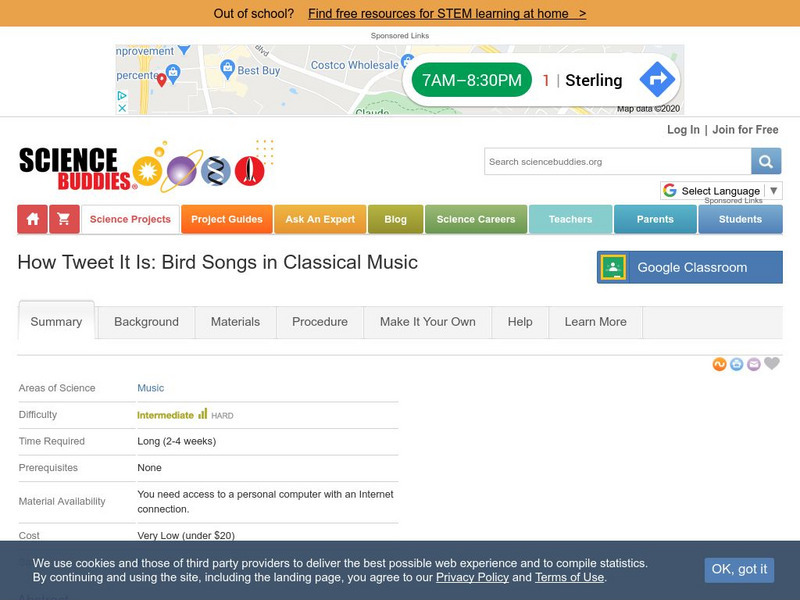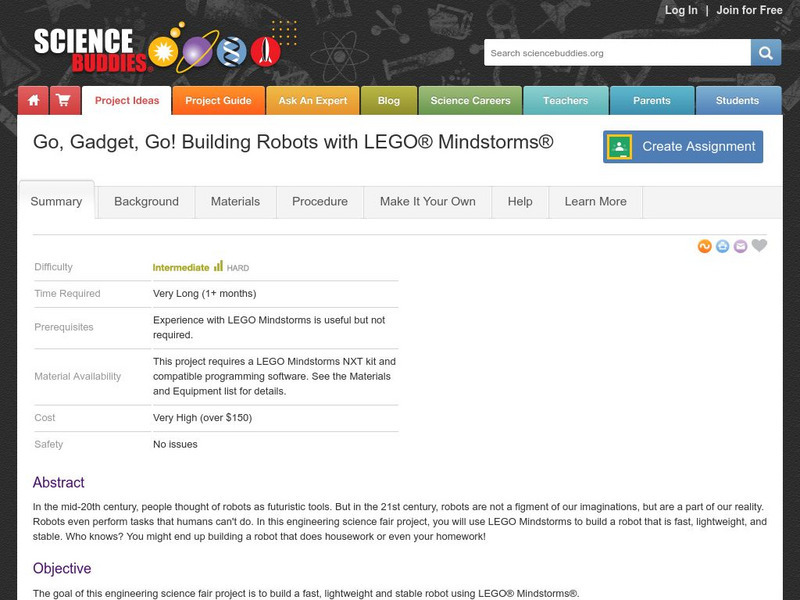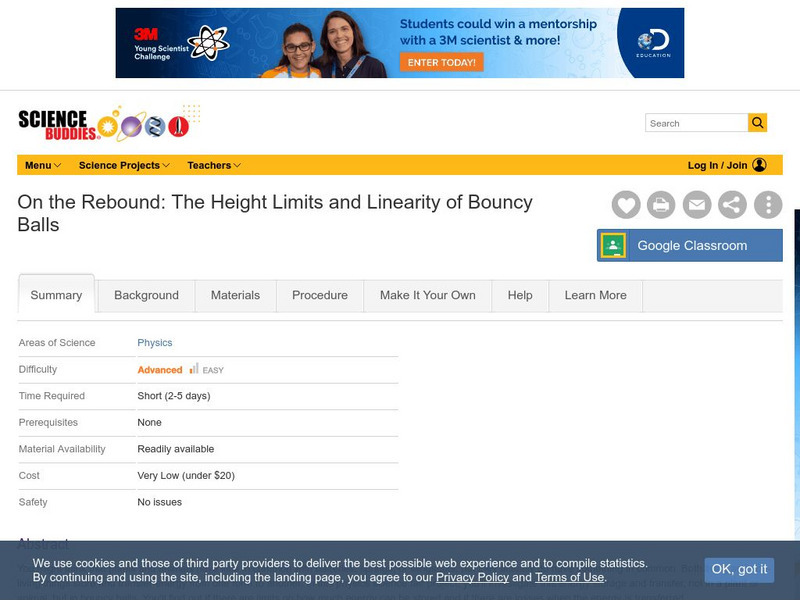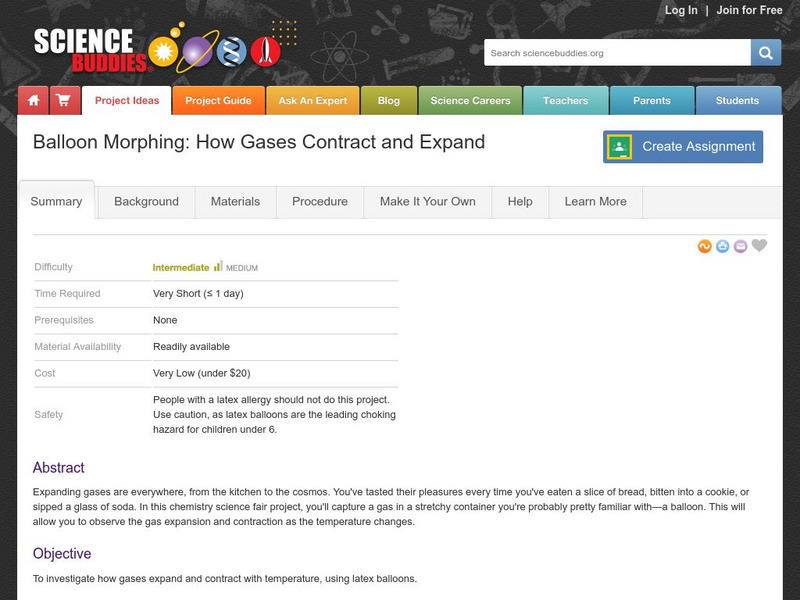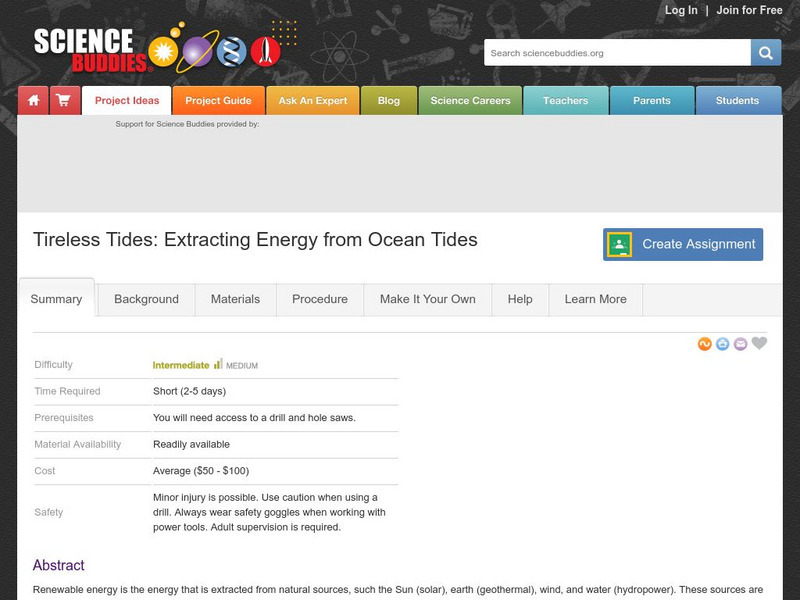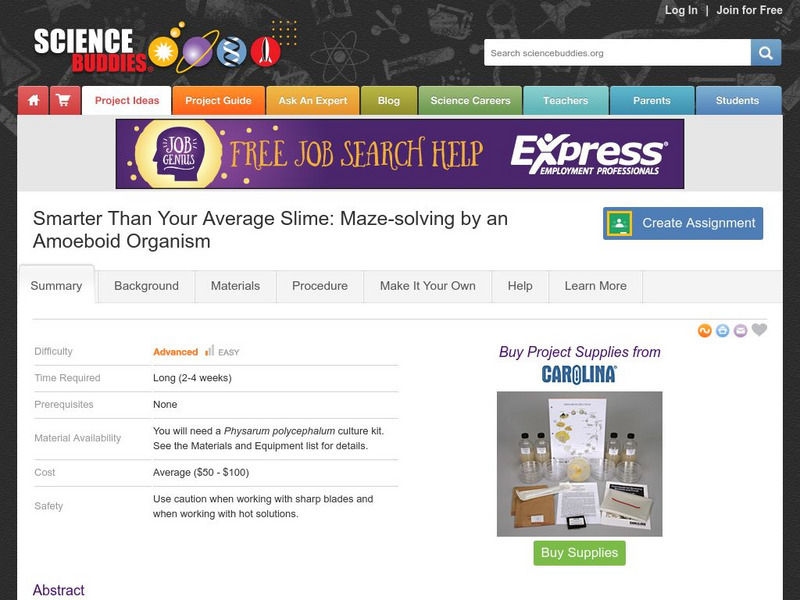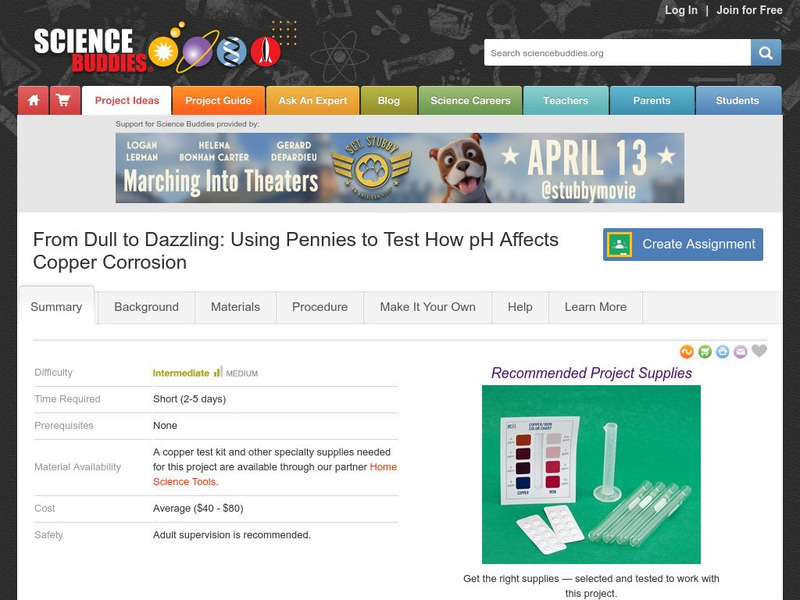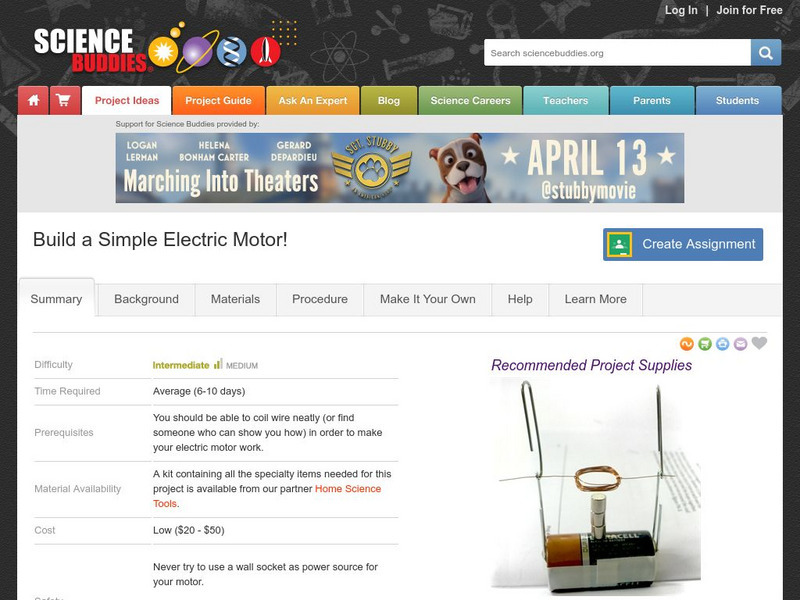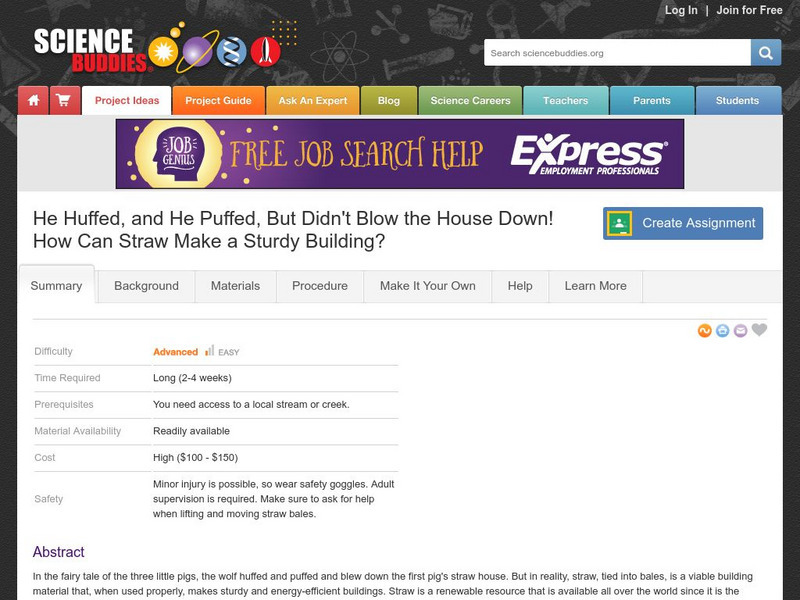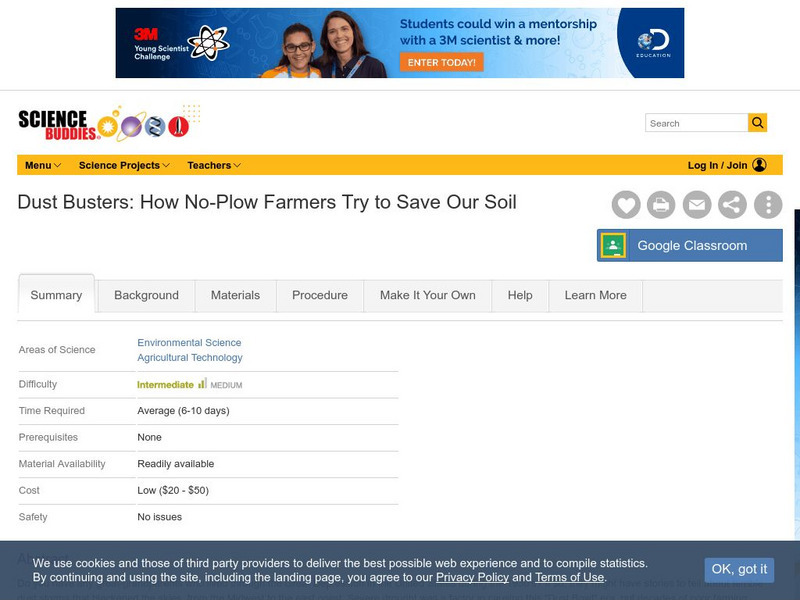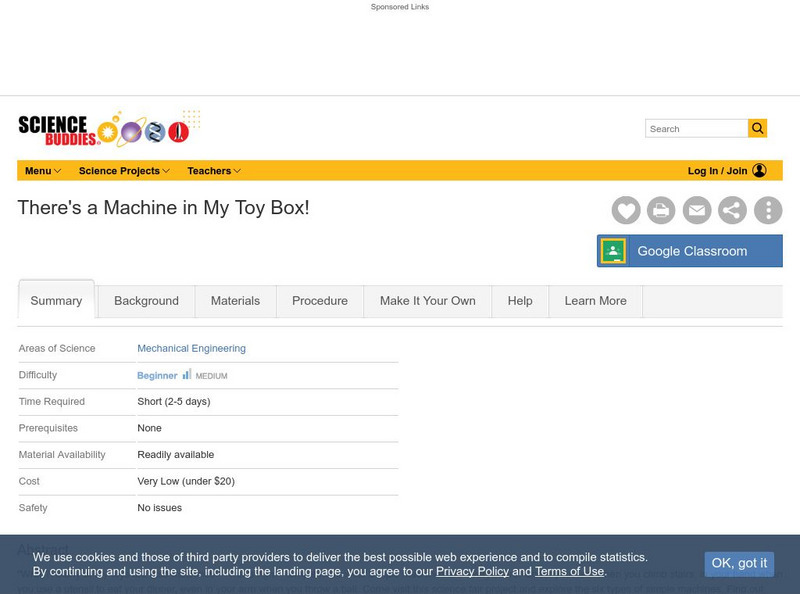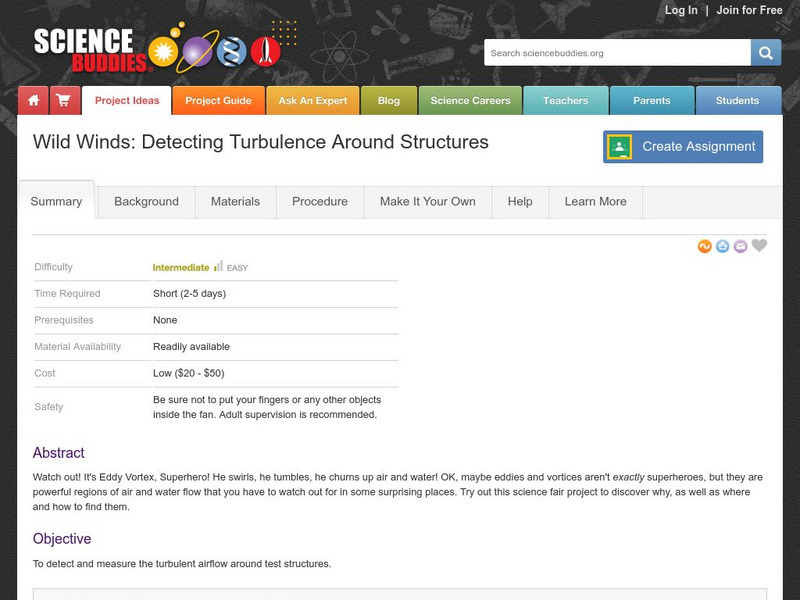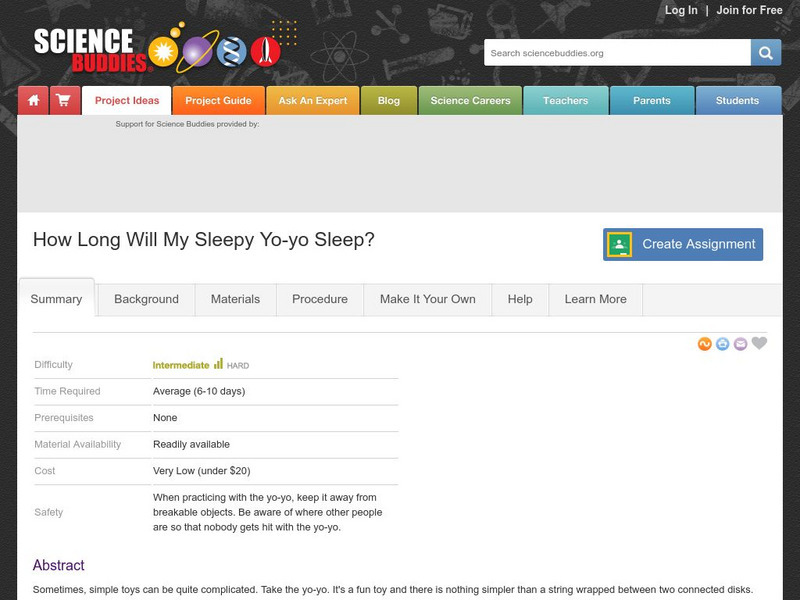Hi, what do you want to do?
Science Buddies
Science Buddies: How Tweet It Is: Bird Songs in Classical Music
Do you enjoy singing contests like American Idol? Well, male songbirds have their own version of a singing competition that has been going on for thousands of years, and classical musical composers have been taking notes. In this music...
Science Buddies
Science Buddies: Fast Food: Can Peppermint Improve Reaction Times?
Did you know that some teachers give their students a peppermint candy on state testing days? Is it to give the kids sweet-smelling breath? Or are the teachers hoping for something more on the important testing day? In this human biology...
Science Buddies
Science Buddies: Froggy Forecasting: How Frog Health Predicts Pond Health
Have you ever heard the expression "a canary in a coal mine"? In the 1900s and earlier, coal miners brought canaries with them into the mines to act as early warning signals. The canaries were very sensitive to low levels of dangerous...
Science Buddies
Science Buddies: Swimming in Acid: Understanding Ocean Acidification
The oceans are a precious natural resource, part of Earth's carbon cycle. But what happens if the oceans absorb too much carbon dioxide? Many scientists are concerned that the increased absorption of carbon dioxide is causing them to...
Science Buddies
Science Buddies: Go, Gadget, Go! Building Robots With Lego Mindstorms
In the mid-20th century, people thought of robots as futuristic tools. But in the 21st century, robots are not a figment of our imaginations, but are a part of our reality. Robots even perform tasks that humans can't do. In this...
Science Buddies
Science Buddies: The Height Limits and Linearity of Bouncy Balls
You might think that plants and animals have little in common with batteries, springs, or slingshots, but they actually do have something in common. Both living and non-living things store and transfer energy from one form to another. In...
Science Buddies
Science Buddies: Vines & Spines: Thigmotropism in Morning Glory Tendrils
We tend to think of plants as immobile, but the tendrils of a vine, such as the morning glory, actually move in response to touch. Tendrils wrap around structures, which give the plant something to grow on. In this science fair project,...
Science Buddies
Science Buddies: Pop Goes the Geyser!
Our home, Earth, is a living planet. Earthquakes and volcanic eruptions are proof that the geological forces that shaped our planet and created the land masses are ongoing. An amazing example of geologic activity that is less damaging is...
Science Buddies
Science Buddies: Balloon Morphing: How Gases Contract and Expand
Expanding gases are everywhere, from the kitchen to the cosmos. You've tasted their pleasures every time you've eaten a slice of bread, bitten into a cookie, or sipped a glass of soda. In this chemistry science fair project, you'll...
Science Buddies
Science Buddies: Tireless Tides: Extracting Energy From Ocean Tides
Renewable energy is the energy that is extracted from natural sources, such the Sun (solar), earth (geothermal), wind, and water (hydropower). These sources are renewable because they can be replenished by the same natural sources within...
Science Buddies
Science Buddies: Leaky Clues to Dam Design: How Reservoir Height Affects Hydroel
It's hard to believe that the same water that you use every day to quench your thirst, cook with, bathe in, swim in, and wash your clothes and dishes, is capable of another trick-it can make electricity. Electricity can be generated...
Science Buddies
Science Buddies: Smarter Than Your Average Slime: Maze Solving by an Amoeboid
In this science fair project, grow the acellular slime mold Physarum polycephalum and test its ability to find the shortest path through a maze.
Science Buddies
Science Buddies: The Strength of an Electromagnet
Has anyone ever told you that you have a magnetic personality? Have you ever heard that opposites attract? These common phrases are both based on the properties of magnets and magnetic electricity. In this science fair project, learn how...
Science Buddies
Science Buddies: Using Pennies to Test How P H Affects Copper Corrosion
In this science fair project, use a color-based reaction to test how pH affects copper corrosion in pennies.
Science Buddies
Science Buddies: Spin Right 'Round With This Simple Electric Motor
If you put on clothes that were washed in a washing machine, rode in a car, ate food from a fridge, warmed up lunch in a microwave, or played a video game, you used an electric motor. Try this science fair project and you'll learn how to...
Science Buddies
Science Buddies: He Huffed, and He Puffed, but Didn't Blow the House Down!
In the fairy tale of the three little pigs, the wolf huffed and puffed and blew down the first pig's straw house. But in reality, straw tied into bales is a viable building material that when used properly, makes sturdy and...
Science Buddies
Science Buddies: Put Some Energy Into It! Use a Calorimeter to Measure
In this science fair project, use a calorimeter with an attached heating element to measure how water responds to added thermal energy.
Science Buddies
Science Buddies: Dust Busters: How No Plow Farmers Try to Save Our Soil
In this environmental science fair project, students will build models of fields prepared by plow-based and no-till methods, and see which ones are best at retaining soil moisture and preventing surface runoff.
Science Buddies
Science Buddies: Slinking Slinkies
Want to do a project with a toy your parents, or even grandparents, might have played with? Slinkies are fun toys that also make great science fair projects. In this experiment you can build an inclined plane to compare the walking speed...
Science Buddies
Science Buddies: Got Iron? Measure the Concentration of Iron in Water
Iron is an important mineral essential for good health. Iron deficiency can be a problem. In this science fair project, use a simple iron test kit to measure the concentration of iron in water. This experiement is explained clearly and...
Science Buddies
Science Buddies: There's a Machine in My Toy Box!
Simple machines are everywhere, even many of your toys are simple machines. Come visit this science fair project and explore the six types of simple machines. Find out how many are hiding under the hinged lid (yes, another simple...
Science Buddies
Science Buddies: Wild Winds: Detecting Turbulence Around Structures
Watch out. It's Eddy Vortex, Superhero. He swirls, he tumbles, he churns up air and water. OK, maybe eddies and vortices aren't exactly superheroes, but they are powerful regions of air and water flow that you have to watch out for in...
Science Buddies
Science Buddies: Now You See It, Now You Don't! Test Your Peripheral Vision
The survival of our ancient ancestors depended on their ability to use peripheral vision to find prey and to avoid predators. Almost everything we do-from riding a bike, to dribbling a basketball, to reading a book-depends on peripheral...
Science Buddies
Science Buddies: How Long Will My Sleepy Yo Yo Sleep?
Yo-yo's are a fun toy and there is nothing simpler than a string wrapped between two connected disks. But there's a lot of physics that makes a yo-yo work. In this science fair project, learn more about how and why a yo-yo works. You...





